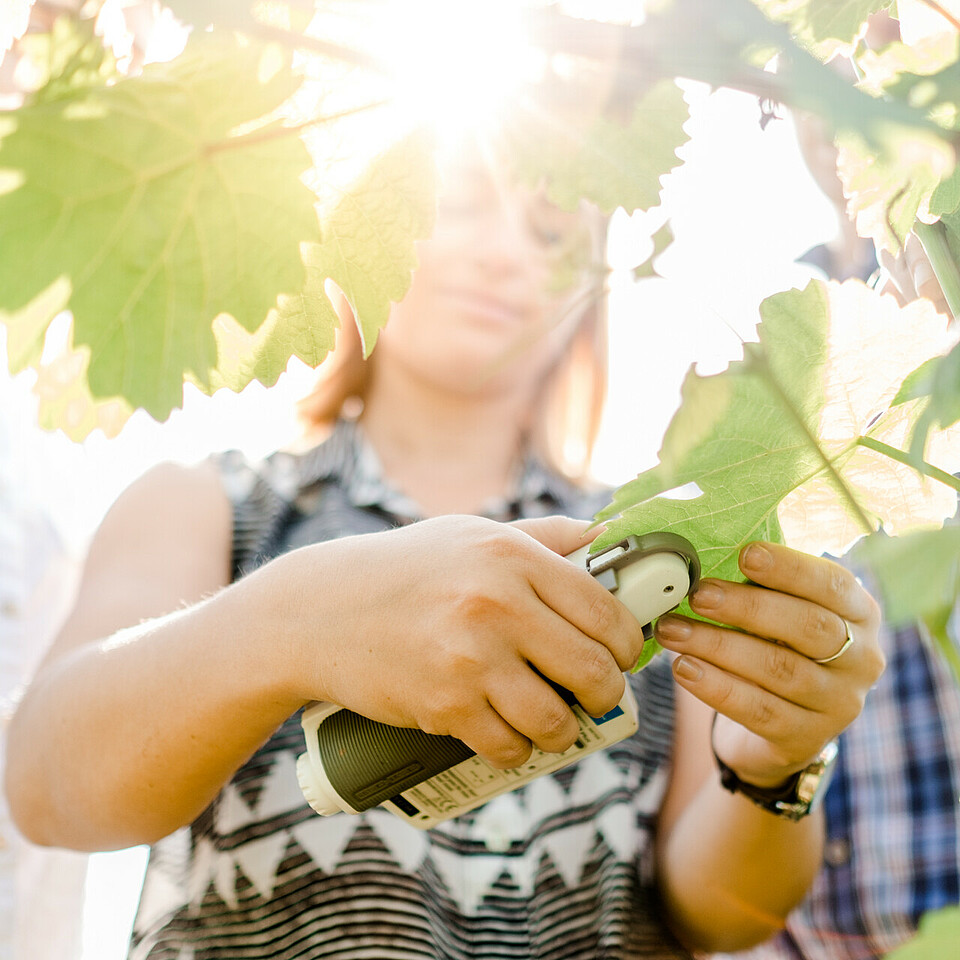
Research area
Viticulture and plant physiology
The aim of viticultural research is to clarify the influence of quality-promoting cultivation measures on the material composition of the grape, in particular the sugars, acids, aroma precursors, anthocyanins and phenols. In their entirety, these form the reservoir from which the wine's value-giving constituents are formed during winemaking. In ongoing research projects, genetic and environmental influences on the synthesis of aroma compounds (monoterpenes) and color/flavor compounds (flavonoids, stilbenes) as well as on the physiology of berries/clusters (size, number, berry skin firmness) are being investigated. Further research focuses on the optimization of cultivation systems and viticultural measures in order to investigate necessary adaptations of production systems to climate change and the resulting increased occurrence of late frost events as well as hot spells.
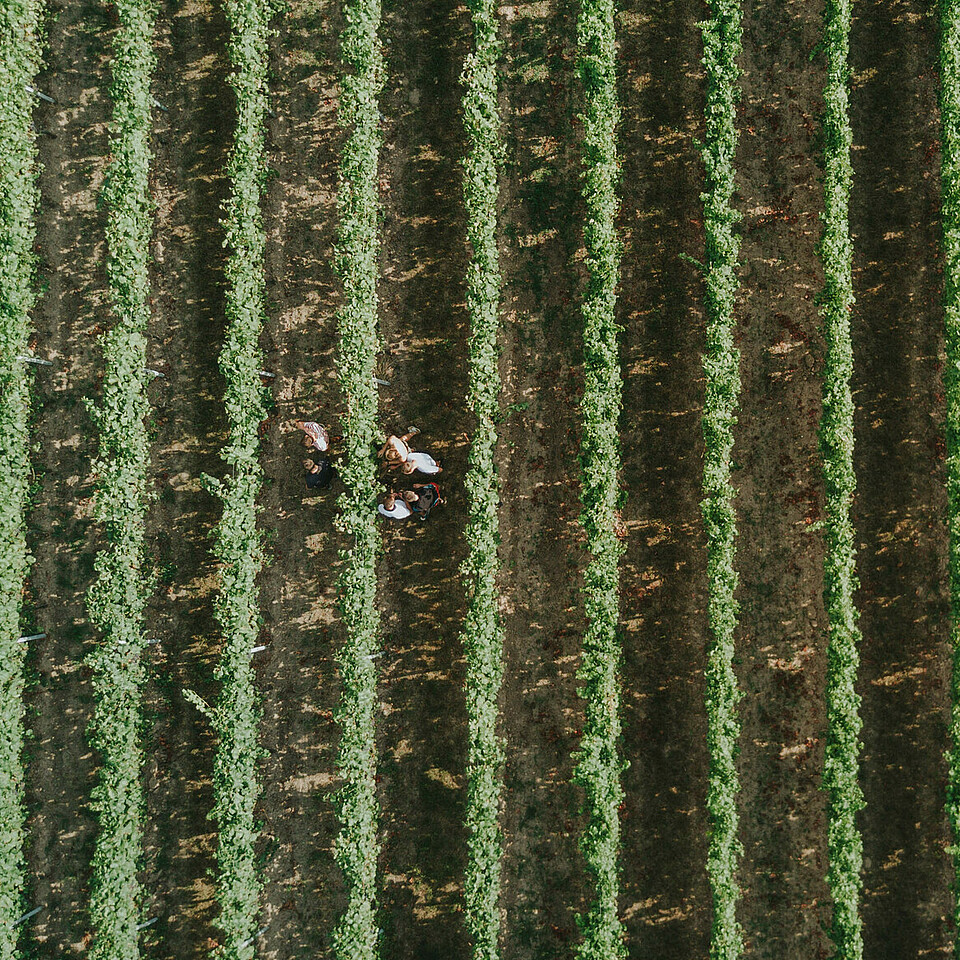
Subject
Phytomedicine
Numerous diseases and pests threaten the health of grapevines and thus endanger grape yield and quality. Research work on the effective and environmentally friendly control of pests is therefore a focus of the work in viticultural plant protection. In addition, diagnostics, consulting and teaching as well as the testing of plant protection products are important fields of activity.
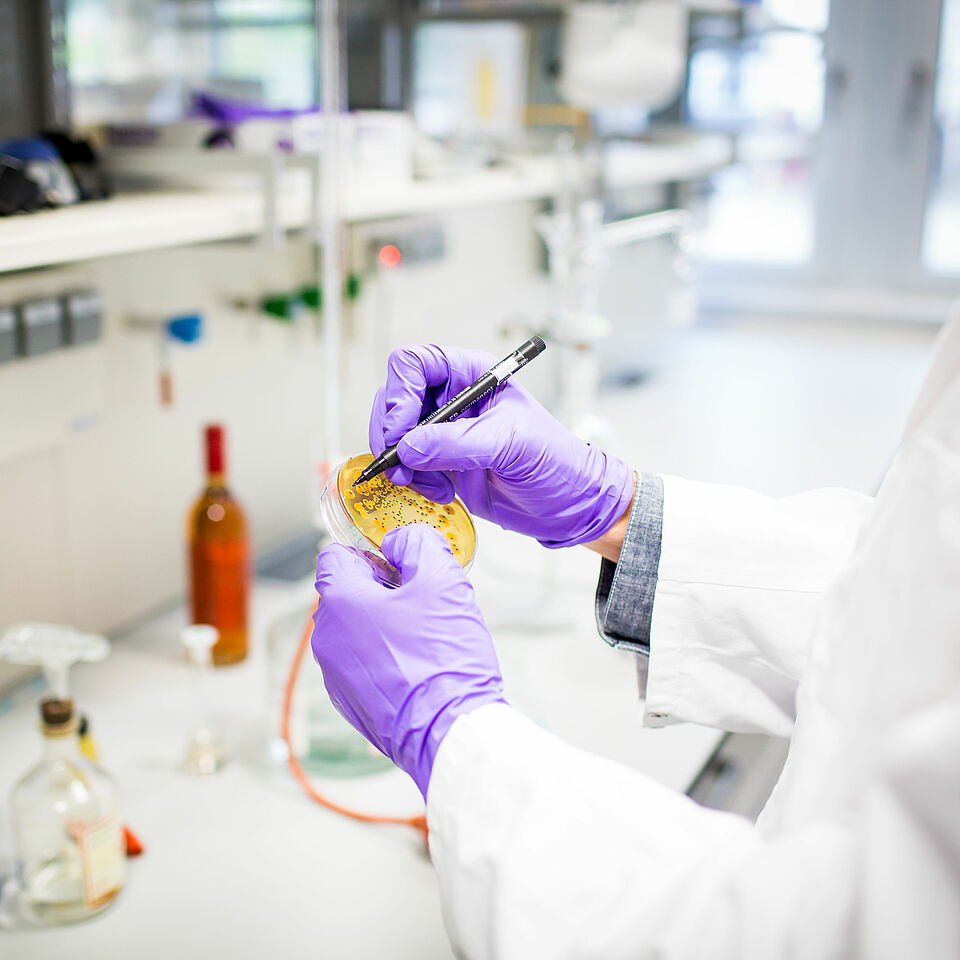
Research area
Microbiology
Microorganisms play the central role in winemaking, whether in alcoholic fermentation by yeasts or in malolactic fermentation by lactic acid bacteria. At the same time, various harmful organisms can negatively influence the ingredients of wine at almost all stages of production. Students acquire knowledge in theory and practice about the most important microorganisms that play a role in winemaking. Detection of microorganisms is also an important focus of teaching and research.
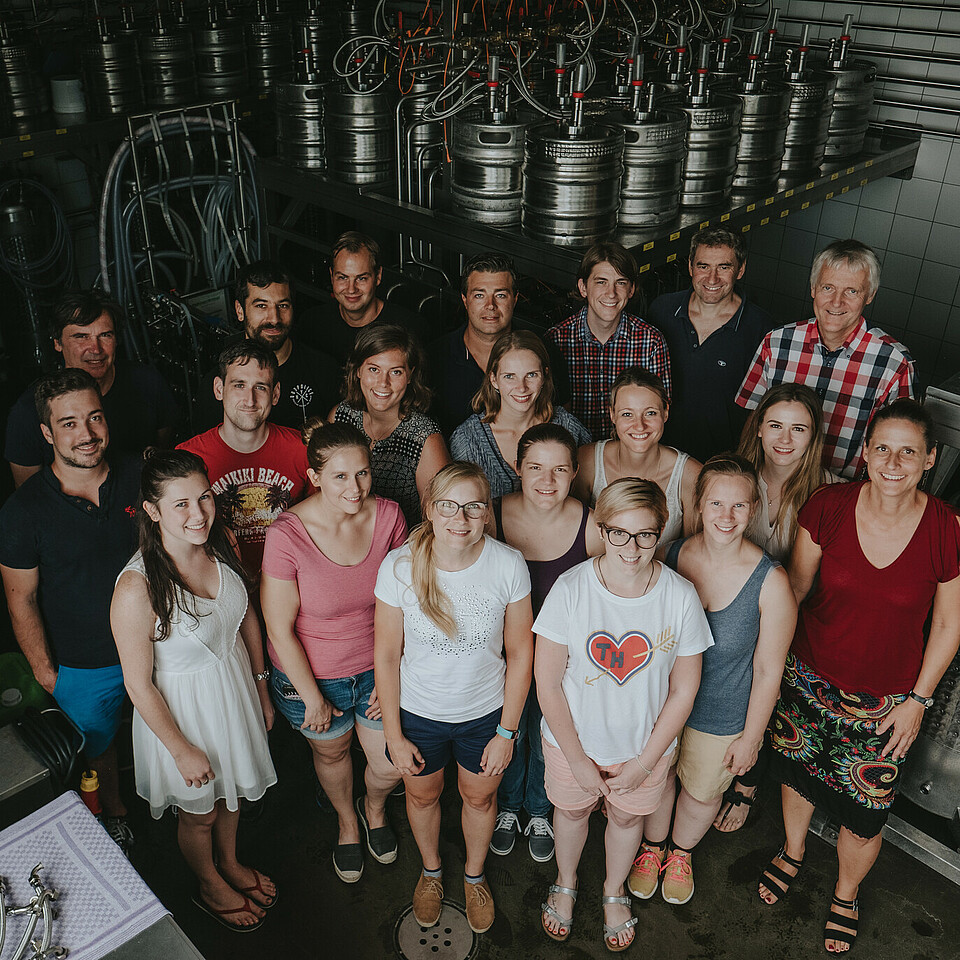
Specialty
Enology, wine analysis and sensory analysis
Oenological research at the Wine Campus Neustadt deals with a variety of current and practice-oriented issues relating to winemaking, starting with grape reception, through the processing of mash and must, to wine maturation, bottling and storage of the bottled wines. Using state-of-the-art sensory and chemical analysis, the complex relationships between oenological influencing factors and molecular changes in wines are clarified. Through globally networked research collaborations, oenological research at the Wine Campus Neustadt is one of the world's leading institutions in the field of innovative wine technologies, aroma analysis and polyphenol research.
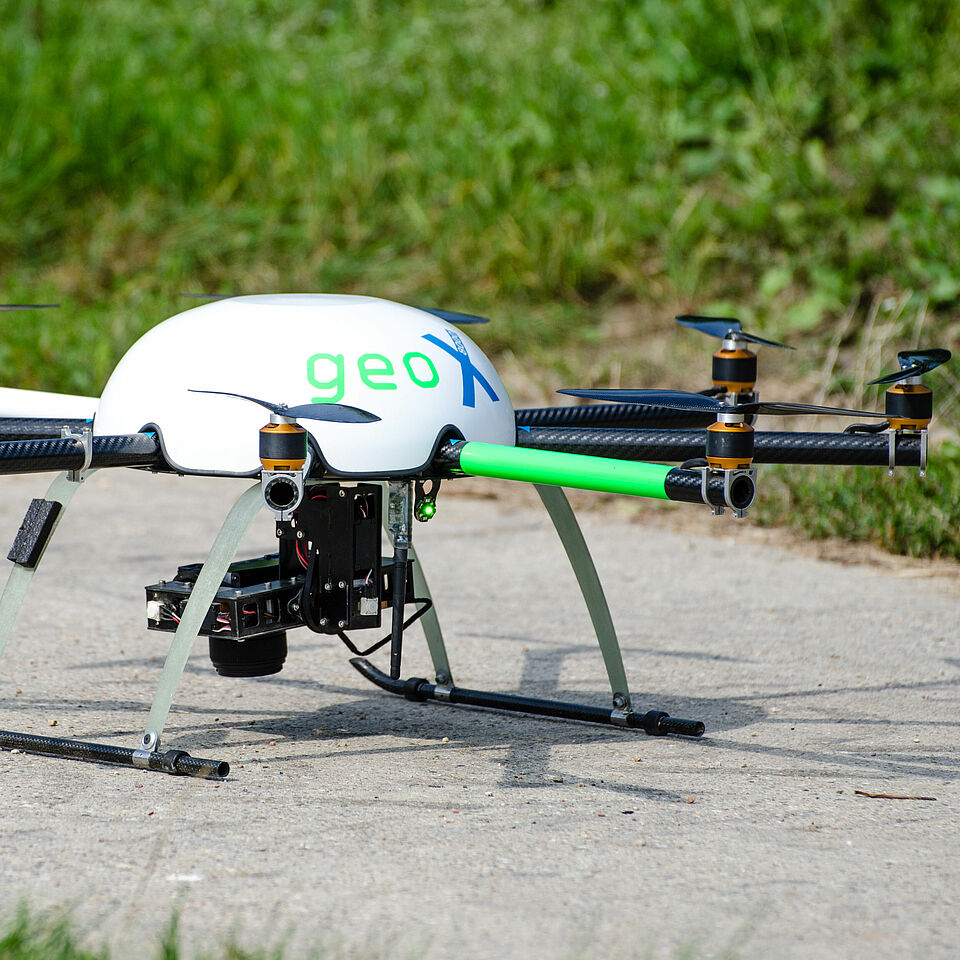
Research area
Precision Viticulture
Precision Viticulture is synonymous with demand-driven management of heterogeneous vineyard areas using digital methods. The use of GPS and sensor-based technology is designed to maximize grape quality while minimizing environmental impact. Georeferenced data generated using close and remote sensing techniques will serve as the basis for GIS-based, zone-specific management plans, which will also be implemented by autonomous machines in the future.
The way into the digital age "Viticulture 4.0" is promoted by the change from analogue to digital field maps and by the operation of digital viticulture management systems. Due to climate change and increasingly very local weather conditions, there is a need to be able to react earlier to unexpected weather events. Field-specific microclimate data can enhance weather forecasting systems to implement viticultural measures with greater temporal precision.
Learn more
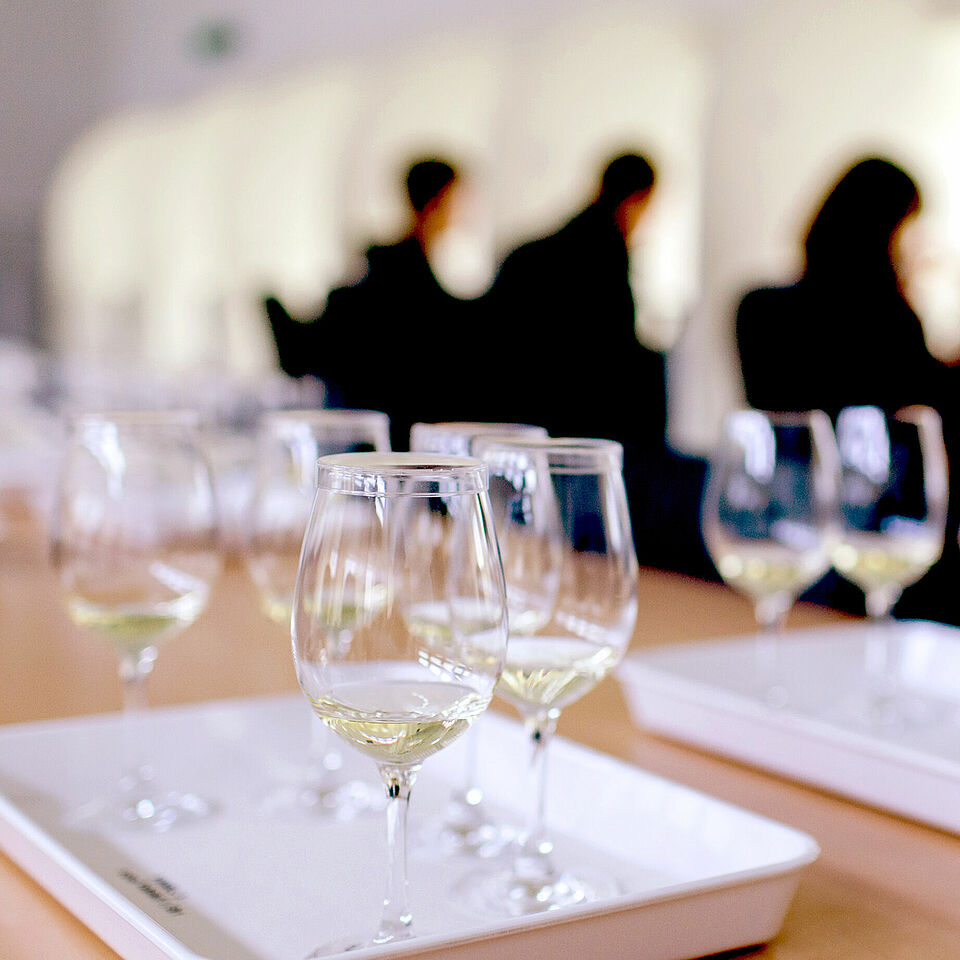
Specialty
BUSINESS ADMINISTRATION
Success in the wine industry is increasingly dependent on professional business management and optimized marketing. Business administration at the Wine Campus makes a significant contribution to the training of entrepreneurial skills. Practically relevant topics are taken up and explored through globally networked research with an international perspective. The three core research areas include strategy, organization and innovation.
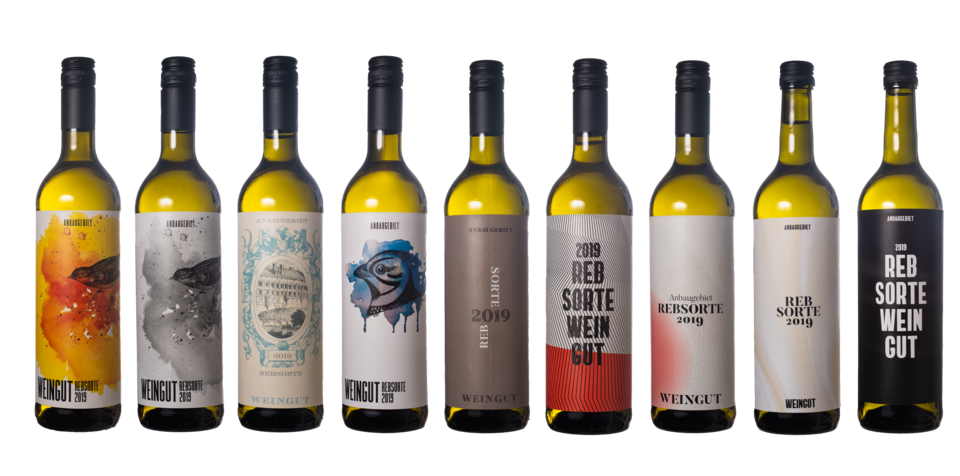
Specialty
Marketing
The field of marketing in wineries has changed considerably in recent years. Not only have new digital possibilities been added, but also new challenges, for example in the presentation of a product and its characteristics. The Marketing research area at the Wine Campus Neustadt is dedicated to these topics.
